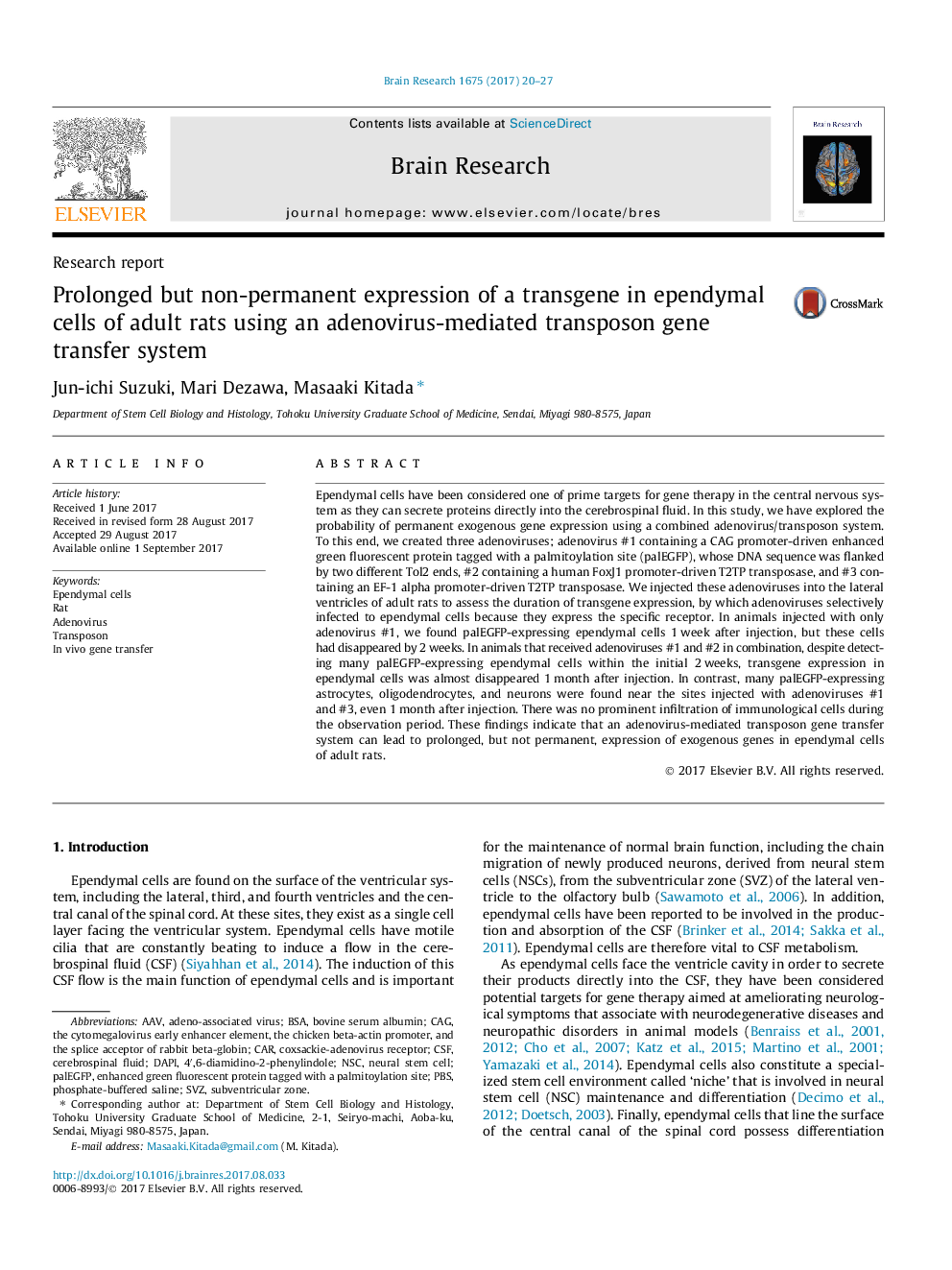| کد مقاله | کد نشریه | سال انتشار | مقاله انگلیسی | نسخه تمام متن |
|---|---|---|---|---|
| 5736470 | 1613770 | 2017 | 8 صفحه PDF | دانلود رایگان |

- The duration of transgene expression was compared between adenovirus/transposon hybrid and adenovirus only.
- Transgene expression in ependymal cells was prolonged but disappeared 1Â month after infection.
- Transgene expression in other cell types was detectable up to 1Â month by hybrid system.
- There might be a mechanism limiting the duration of transgene expression in ependymal cells.
Ependymal cells have been considered one of prime targets for gene therapy in the central nervous system as they can secrete proteins directly into the cerebrospinal fluid. In this study, we have explored the probability of permanent exogenous gene expression using a combined adenovirus/transposon system. To this end, we created three adenoviruses; adenovirus #1 containing a CAG promoter-driven enhanced green fluorescent protein tagged with a palmitoylation site (palEGFP), whose DNA sequence was flanked by two different Tol2 ends, #2 containing a human FoxJ1 promoter-driven T2TP transposase, and #3 containing an EF-1 alpha promoter-driven T2TP transposase. We injected these adenoviruses into the lateral ventricles of adult rats to assess the duration of transgene expression, by which adenoviruses selectively infected to ependymal cells because they express the specific receptor. In animals injected with only adenovirus #1, we found palEGFP-expressing ependymal cells 1Â week after injection, but these cells had disappeared by 2Â weeks. In animals that received adenoviruses #1 and #2 in combination, despite detecting many palEGFP-expressing ependymal cells within the initial 2Â weeks, transgene expression in ependymal cells was almost disappeared 1Â month after injection. In contrast, many palEGFP-expressing astrocytes, oligodendrocytes, and neurons were found near the sites injected with adenoviruses #1 and #3, even 1Â month after injection. There was no prominent infiltration of immunological cells during the observation period. These findings indicate that an adenovirus-mediated transposon gene transfer system can lead to prolonged, but not permanent, expression of exogenous genes in ependymal cells of adult rats.
Journal: Brain Research - Volume 1675, 15 November 2017, Pages 20-27